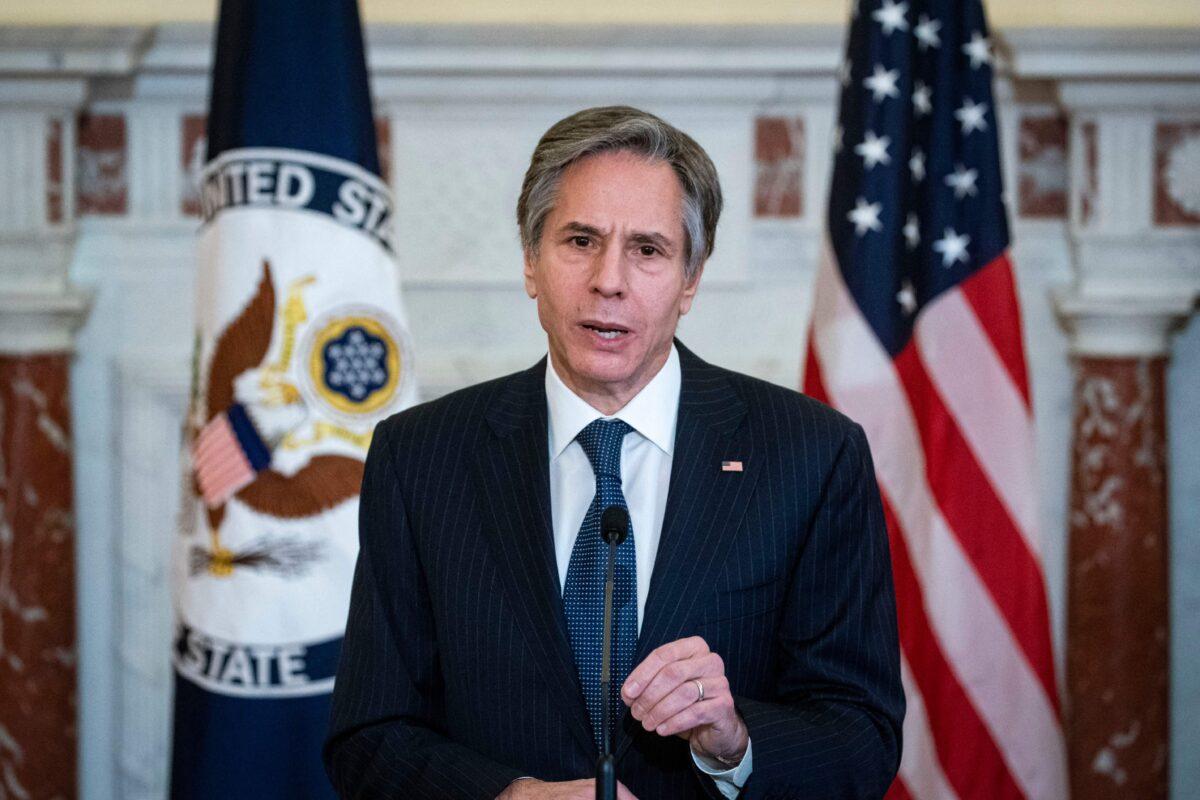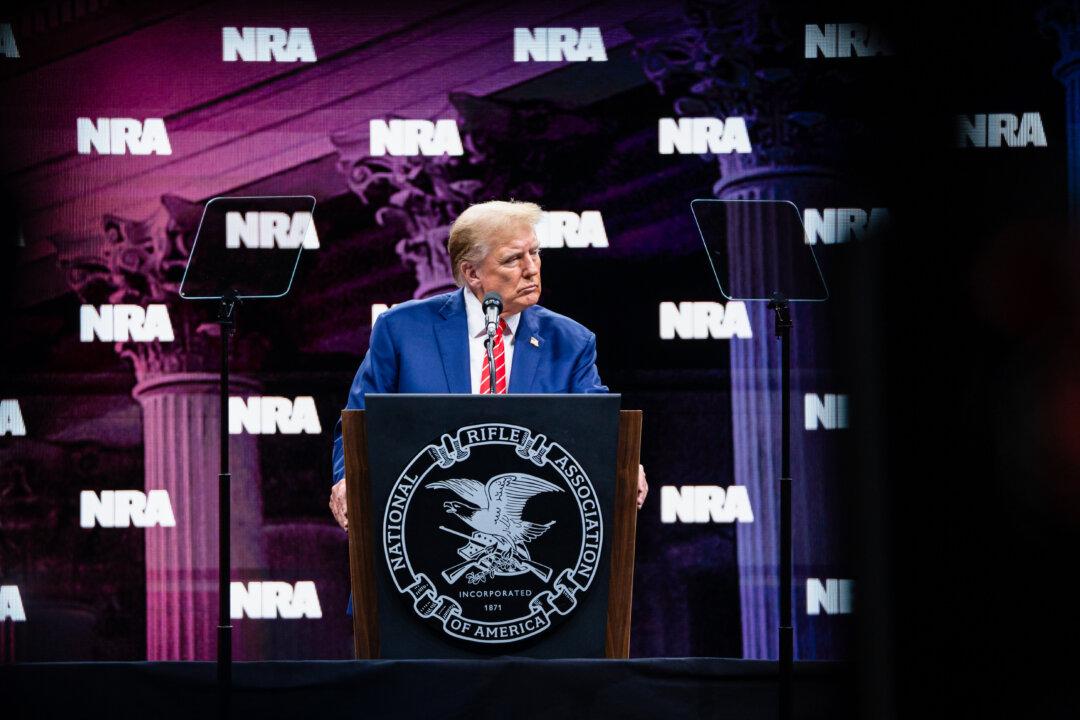China hasn’t responded to an invitation to be part of the Global Coalition to Address Synthetic Drug Threats, probably because of its strained diplomatic relations with the United States, U.S. officials said.
U.S. Secretary of State Anthony Blinken said the United States is joining more than 80 countries and dozens of international agencies against the threat posed by synthetic opioids such as fentanyl.
Mr. Blinken delivered the opening remarks for the coalition’s July 7 virtual meetings for world leaders to share resources, strategies, and information in the battle to control synthetic drugs.
China is a major source of the precursors used in producing fentanyl, a major problem in the United States.

In an online news conference about the coalition meetings a day before, Todd D. Robinson, assistant secretary of state for the bureau of international narcotics and law enforcement affairs, said the Chinese had previously worked closely with the United States and that the door remains open to resume that cooperation.
“We’ve had successful cooperation in the past with the PRC [People’s Republic of China] on counternarcotics. They have not engaged with us on this issue in recent months; we continue to actively seek their cooperation,” Mr. Robinson said.
He added that China is still talking with other coalition countries and could be persuaded by them to do its part.
“They are talking to other countries. And that’s part of the reason we’re trying to bring this coalition together is to engage other countries,” Mr. Robinson said.
“This is not just about the United States and the PRC,” referring to the acronym for the official name of mainland China: the People’s Republic of China.

The lack of open channels between the nations has reportedly prompted international concern, with Beijing’s reluctance to engage in regular military-to-military talks with Washington a source of alarm to China’s neighbors.
The Russia–Ukraine war has thrown the relationship among Russia, the United States, and China into stark relief, drawing international attention. Mr. Robinson said addressing the synthetic opioid problem could help bridge the gap.
“This is a global problem that’s going to require a global response. We think having other countries engage with the PRC will eventually bear fruit,” he said.
Mexico, home of cartels that produce and smuggle fentanyl into the U.S., is expected to participate.
“Mexico is on board,” Mr. Robinson said.

In his opening remarks, Mr. Blinken outlined the scope of the problem in the United States. He said that in the United States, fentanyl is the top killer of people between ages 18 and 49. In the past year, 110,000 people died of a drug overdose. Two-thirds of them involved synthetic opioids.
He said the drugs have claimed more lives than guns and automobile crashes combined.
“America is not alone in facing this challenge,” Mr. Blinken said.
He stated that drug cartels and organized crime operations have adopted and co-opted legitimate business processes to do their work. He said they are adept at adjusting to market conditions, including law enforcement efforts to shut them down.
US to Present Three-Step Plan
He said the United States would present a three-step plan for the coalition to consider. This would include disrupting the trafficking of precursors to stop the manufacturing of the drugs, working with other countries to detect emerging threats and patterns of drug use in society, and promoting public health services to address addiction.Mr. Blinken said most coalition members are already working on such programs and that he hopes the coalition can take the best features of each and apply them.
“This coalition is needed to build on these efforts, not take their place,” Mr. Blinken said.
Murat Nurtleu, Kazakhstan’s minister of foreign affairs, said his country is in the grips of its own opioid issue. He said his government had identified 18,000 drug users but suspects that the total number is at least four times larger.
Partnerships Are Essential
He said partnering with other countries is essential.“Our successful partnership with the United States plays a crucial role in combatting illicit drugs,” Mr. Nurtleu said.
Panel discussions were held later in the day to discuss the direction the coalition would take. Mr. Blinken said this began a process that will continue into March 2024.
“The global coalition plans to reconvene on the margins of the 78th U.N. General Assembly and the March 2024 U.N. Commission on Narcotic Drugs. These gatherings will provide critical platforms to share progress and achievements.”





